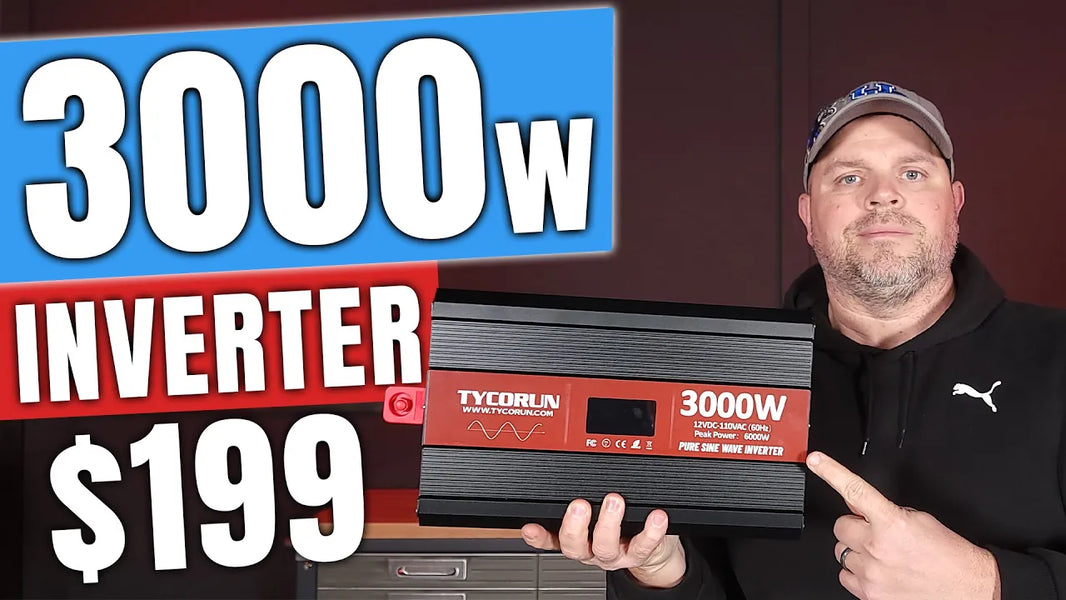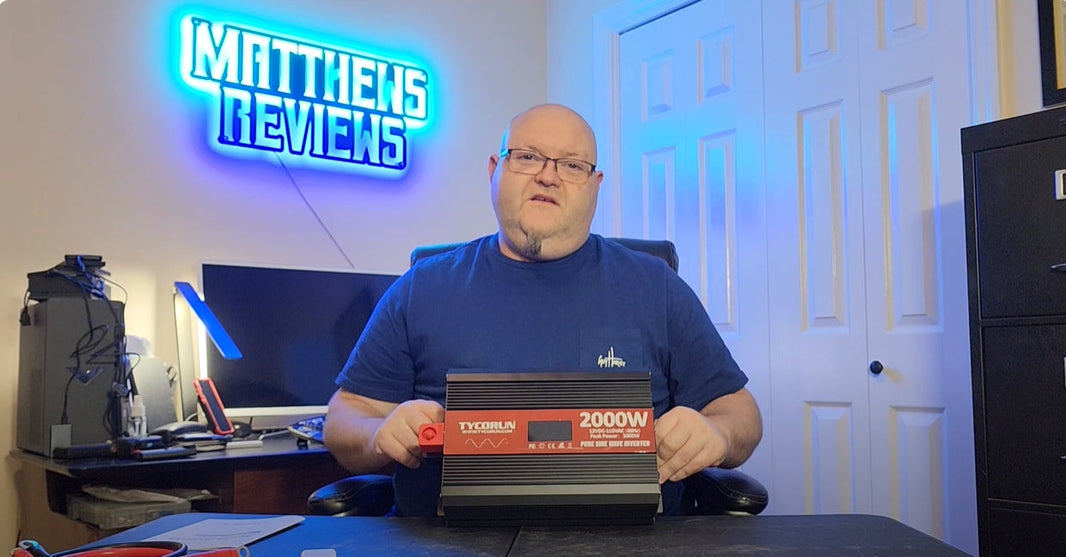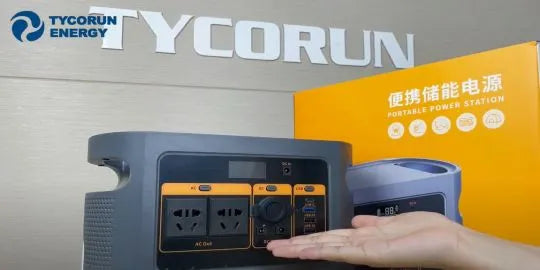
Main content:
- Solar Battery vs Generator: How Do They Work?
- What's the Difference Between a Solar Battery and a Generator?
- Factor To Consider Before Choosing Solar Battery vs Generator
- Solar Battery vs Generator: When Should You Choose a Battery?
- Solar Battery vs Generator: When Is a Generator the Better Option?
- The Output Of Solar Battery vs Generator
- Can We Combine A Solar Battery vs Generator
- Final Thoughts: Which Backup Power Solution Is Right for You?
- FAQ
In today's world, where blackouts are more frequent and unpredictable due to extreme weather and grid instability, homeowners and businesses are looking for reliable ways to keep the lights on. This brings us to a common question—solar battery vs generator, which is better for backup power?
Both systems have their strengths and weaknesses. To make the right choice, it's important to understand how they work, what they cost, and how they affect the environment and your long-term energy plans. Let's dive in!
Solar Battery vs Generator: How Do They Work?
When comparing a solar generator vs battery bank, it's good to first understand what each one means. A solar battery is a storage unit connected to a solar panel system. It stores extra energy from the sun and provides power at night or during blackouts. A solar generator is usually a small, portable device with a battery, solar input, and home solar inverter. It's handy for short trips or emergencies but doesn't hold much power.
For homes connected to the power grid, solar batteries are often the better choice. Brands like TYCORUN Powerwall 48V 200Ah battery, and LG Chem RESU give strong backup and daily energy use. Choosing between a solar battery vs generator depends on whether you want long-term power for your home or a short-term portable solution.
What's the Difference Between a Solar Battery and a Generator?
Solar batteries and generators both function to store energy, but to understand them more clearly and completely, let's break them down one by one.
What Is a Solar Battery?
A solar battery is a device that saves extra electricity made by your solar panels so you can use it later. This is helpful when your panels aren't making power, like at night or on cloudy days. Instead of wasting the extra energy during sunny times, the battery stores it so your home can still run smoothly. Solar panels create electricity as DC (direct current), but most homes use AC (alternating current). The battery system helps change DC into AC, so your appliances can use the power safely.

There are different kinds of solar batteries. The two most common ones are lithium-ion and lead-acid:
- Lithium-ion batteries now become top choices and better in many ways. Lithium ion solar battery last longer, can store more energy in a small space, and are not as heavy. Most people use these for home solar systems.
- Lead-acid batteries are older and cheaper, but lead acid batteries don't last as long and aren't as efficient. They can still be useful, but many people prefer lithium-ion for better performance.
Types of Solar Battery Systems
- Off-Grid DC-Coupled Systems: Ideal for cabins and remote areas. They allow solar panels to directly charge the battery, simple and efficient for isolated locations.
- Off-Grid AC-Coupled Systems: Best for retrofitting older off grid solar power system. Solar energy is converted from DC to AC and back to DC to store in the battery, offering flexibility.
- Grid-Tied AC-Coupled Systems: Common in urban areas. They charge the battery and power the home. They offer backup power during outages and are quieter than generators.
- Grid-Tied DC-Coupled Systems: Designed for high efficiency and minimal energy loss. Best for new homes built for solar, offering energy independence and clean design.
These four system types help simplify the solar battery vs generator decision by offering reliable long-term energy storage without the need for fuel or emissions.
What Is a Generator?
Backup generators give your home electricity when the main power goes out. They work by turning fuel—like propane, natural gas, or diesel—into electrical energy. This helps keep important devices running during blackouts.

- Portable generators: Small, movable, and good for short-term power needs. Usually powered by gasoline or propane.
- Standby generators: Larger, stay in one place, and turn on automatically during power outages. Suitable for powering an entire home.
Factors To Consider Before Choosing Solar Battery vs Generator
If you're thinking about how to keep your home powered during blackouts, you've probably come across two popular options: solar batteries and generators. Let's look at how they compare.

Cost Factor
- Solar Batteries: Solar battery price, higher upfront cost but potential for long-term savings. No fuel needed.
- Generators: Lower initial cost but ongoing fuel and maintenance expenses.
Generators are cheaper upfront, but solar batteries save more in the long run.
Effect on Environment
- Solar Batteries: Clean energy, no emissions, environmentally friendly.
- Generators: Burn fossil fuels, produce pollution and greenhouse gases.
Solar batteries are the greener choice.
Performance
- Solar Batteries: Great in sunny areas but dependent on weather.
- Generators: Reliable regardless of weather, as long as fuel is available.
How To Maintain
- Solar Batteries: Low maintenance, long-lasting, fewer moving parts.
- Generators: Require regular servicing—oil changes, fuel checks, part replacements.
Ease To Use
- Solar Batteries: Automatic, quiet, space-saving, integrate well with solar systems.
- Generators: May need manual startup, noisy, require outdoor space.
Solar Battery vs Generator: When Should You Choose a Battery?
- Cleaner and Greener Energy: Reduces pollution and carbon footprint.
- More Energy Independence: Great for off-grid living or frequent blackouts.
- Lower Costs Over Time: Free sunlight, no fuel refills needed.
- Quiet and Peaceful: Operates silently without vibrations or noise.
- Easy to Maintain: Minimal upkeep, especially lithium-based batteries.
- Financial Incentives: Eligible for rebates and tax credits in some regions.
- Stylish Design: Compact, wall mounted battery options like Tycorun Powerwall.
Solar Battery vs Generator: When Is a Generator the Better Option?
- Fast Power: Immediate backup during outages.
- High Power Needs: Better suited for heavy loads and large appliances.
- Lower Upfront Cost: Affordable and widely available.
- All-Weather Operation: Not dependent on sunlight.
- Fuel Flexibility: Works with gas, propane, or natural gas.
- Simple Installation: No complex solar infrastructure required.
The Output Of Solar Battery vs Generator
Generators can provide continuous power for a long time, as long as you have enough fuel. That's because solar batteries can only store a certain amount of energy, depending on the type and brand. But generators can keep your home running for hours or even days—as long as you have fuel.

A common question in the solar battery vs generator discussion is: If you already have solar panels, do you still need a generator? The answer is: not always. If your solar system includes a solar battery, you can still get power during a blackout. That means you don’t need a traditional generator unless you live in an area with long outages or very low sunlight.
Can We Combine A Solar Battery vs Generator
For many homes and off-grid places, the best way to stay powered is not choosing just one system, but combining both a solar battery and a generator. This setup gives you the best of both worlds: clean solar energy for everyday use and a backup generator for times when the sun isn't shining.
When talking about solar battery vs generator, it's clear that each has strengths and weaknesses. Solar batteries give quiet, eco-friendly power with long-term savings. But during long outages or cloudy days, a generator adds reliable backup power to keep your lights on.
Here are some simple reasons why using both together makes sense in the solar battery vs generator discussion:
- Always Have Power
With both systems working together, you'll always have power. Solar panels charge the battery during the day. If the battery runs low—like during a long storm or power cut—the generator turns on to help. This is very helpful in places where the power often goes out or during emergencies.
From a solar battery vs generator view, using both systems solves the problem of not having enough solar energy all the time. You get the benefits of clean energy while still being ready for bad weather or power failures.
- Use Less Grid Power
Combining a solar battery and generator helps you rely less on the power grid. Solar panels lower your energy bills by producing free electricity. The battery stores that energy for use at night. When needed, the generator gives extra support. This setup makes you more energy independent.
- Saves Money Over Time
Buying solar panels and batteries may cost more at first, but they help you save money in the long run. Generators can be used only when needed, which saves fuel and reduces wear. So, in the solar battery vs generator debate, a mix of both gives a smart, cost-saving solution.
- Power Your Way
Everyone's power needs are different. Some people may use a small battery for daily use and keep a generator for emergency use. This way, you can build a power system that fits your needs without overspending.
- Better for the Environment
Solar power is clean and doesn't pollute. While generators use fuel, using them only when needed cuts down pollution. So in the solar battery vs generator comparison, a combined system can lower your carbon footprint more than just using a generator.
- Easy to Monitor and Maintain
Today's smart systems let you track how much energy you use, how full your battery is, and how often your generator runs. This helps you keep everything working smoothly without much effort.
Final Thoughts: Which Backup Power Solution Is Right for You?
Solar batteries are great for homeowners with solar panels who want clean, quiet, and low-maintenance power. They offer long-term savings and are better for the environment.
Generators are better for high power needs and locations with limited sunlight. They provide instant power but require fuel and regular upkeep.
Think about your budget, power usage, and local weather to decide which backup option—solar battery vs generator—is right for you.
FAQ
Which is better, battery backup or generator?
Across most categories, battery backup systems come out on top. In short, they're better for the environment, easier to install and cheaper to run long-term. Plus, they have longer warranties than standby generators.
Can I have solar with battery backup and a generator?
In most standard systems, you cannot run solar panels and a generator at the same time unless you have a hybrid inverter designed for it.
How long does solar battery backup last?
The duration they can sustain power depends on their capacity and the energy demand of your home, generally ranging from a few hours to several days, as technical specifications and usage will determine this.
Related Post: High frequency inverter vs low frequency inverter, Inverter vs generator, Solar cell vs solar panel
















